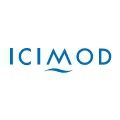


The Hindu Kush Himalaya (HKH) region stretches 3,500 km across Asia, spanning eight countries – Afghanistan, Bangladesh, Bhutan, China, India, Myanmar, Nepal, and Pakistan. Encompassing high-altitude mountain ranges, mid-hills, and plains, the zone is vital for the food, water, and energy security of around two billion people and is a habitat for countless irreplaceable species. It is also acutely fragile and at the frontline of the impacts of the triple planetary crisis of climate change, pollution, and biodiversity loss.
The International Centre for Integrated Mountain Development (ICIMOD), based in Kathmandu, Nepal, is an international organisation established in 1983, that is working to make this critical region greener, more inclusive and climate resilient. For more information, read our Strategy 2030 and explore our website.
The Hindu Kush Himalaya (HKH) region stretches 3,500 km across Asia, spanning eight countries – Afghanistan, Bangladesh, Bhutan, China, India, Myanmar, Nepal, and Pakistan. Encompassing high-altitude mountain ranges, mid-hills, and plains, the zone is vital for the food, water, and energy security of around two billion people and is a habitat for countless irreplaceable species. It is also acutely fragile and at the frontline …
Views: 3601 | This job is expired 8 months, 2 weeks ago
Position overview
The position of Geo Information System (GIS) Analyst provides an excellent opportunity to utilise satellite data and geospatial technology in tackling some of the HKH’s most pressing socio-economic and environmental problems – urbanisation, migration, climate change, and natural disasters. The position will also demand going beyond technological constraints. Specifically, the GIS Analyst is expected to harness expertise in Earth observation (EO) data and cutting-edge geospatial technology to create basic socio-economic statistics and pioneer innovative solutions for addressing mountain socio-ecological futures.
Under Action Area C, the GIS Analyst will support two workstreams: developing socio-economic profiles on population, migration, and urbanisation projections, among others, to support foresight and scenario analyses in order to address critical risks and opportunities in the HKH region; and conducting spatiotemporal analyses of land use and risks induced by climatic and non-climatic changes which affect the sustainability of mountain settlements. One of the major contributions of the GIS Analyst to these two workstreams would be in creating socio-economic data for the present and future in order to better understand the adaptation needs of the people in the region in the context of impacts on HKH social-ecological systems. Besides, the GIS Analyst will support other assignments related to mountain livelihoods and economies under AAC.
Apart from focusing on the two workstreams mentioned above, the GIS Analyst will also be working closely with the Regional Information Service Team of Strategic Group 3: Enabling Regional and Global Mechanisms for Sustainable Action.
Responsibilities
The GIS Analyst will be responsible for delivering results in line with the commitments ICIMOD has made in our Strategy 2030: Moving Mountains and our Medium-Term Action Plan V (2023–2026): Embracing Change and Accelerating Impact. As a recognised expert in GIS, the Analyst will be responsible for:
Person Specification/Competencies
Education And Experience
Skills and competencies
Reporting and supervising
The GIS Analyst will report to the AAC Coordinator and will be closely supervised by the Intervention Managers.
Location
You will be working in a cross-cultural, impact-oriented environment at ICIMOD’s head office in Kathmandu, Nepal. Travel for capacity-building trainings in the HKH region will be required. Kathmandu is a lively and exciting place to live. Its crime rate is low; the people are friendly; the living costs are reasonable; the food is delicious (with a range of local and international cuisines); and there are a good number of local and international schools. Then there are amazing trekking trails to explore; the excitement of safaris and whitewater rafting; a charming nightlife; and a vibrant culture.
Duration
Until September 30, 2026, with a probation period of six months. There is a possibility of extension subject to performance and ICIMOD’s future funding levels.
Remuneration
This is an international position at ICIMOD. The starting annual gross salary for this position is USD 16,320/- (negotiable, based on experience and qualifications). The gross salary covers basic salary, provident fund, family/post-adjustment allowance, and child/dependency allowances. Salaries and benefits at ICIMOD are competitive compared with other international organisations. We also offer a comprehensive benefits package which includes insurances (medical, life, and accidental), children’s education grant for maximum 2 children below 18 years of age, severance pay, paid leave (for 30 holidays and 10 public holidays per year), and daycare.
For expatriates, there is a tax exemption in Nepal; but they are responsible for their home country’s tax payments. Expatriate staff are entitled to housing allowance, annual home leave ticket, shipment of personal effects, and an installation and repatriation allowance.
ICIMOD’s core values
Our core values are integrity, neutrality, relevance, inclusiveness, openness, and ambition. These values are an expression of our culture and are central to the guiding beliefs and principles of our work and behaviour. Our core values will lie at the heart of ICIMOD operations and delivery. They will underpin everything we do and frame how we work with our partners. They reflect our founding intentions and the balances we seek to hold, while equipping ourselves for the future.
Diversity, equity, inclusion, and safeguarding
ICIMOD’s human resource selection process is based on the qualifications and competence of the applicants. As an employer, ICIMOD is committed to promoting diversity, equity, and inclusion, and offers equal opportunities to applicants from all backgrounds and walks of life, including, but not limited to, gender, age, national origin, religion, race, caste, ethnicity, sexual orientation, disability, or social status. ICIMOD strongly encourages applications from all eligible applicants, especially women, from all parts of the HKH region.
ICIMOD is dedicated to establishing and upholding a safe and nurturing work environment, where all its employees can participate fully and meaningfully without fear of violence, harassment, exploitation, or intimidation. Any type of abuse or harassment, including sexual misconduct (such as child abuse), by our staff, representatives, or stakeholders is not condoned or tolerated.
This job has expired.









